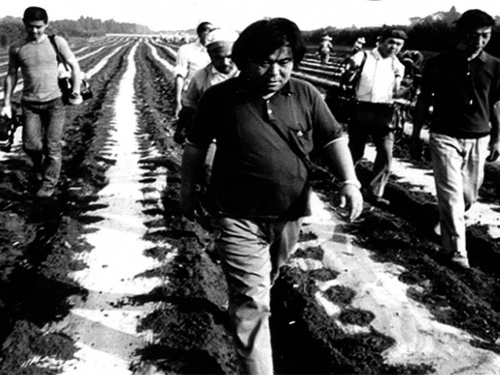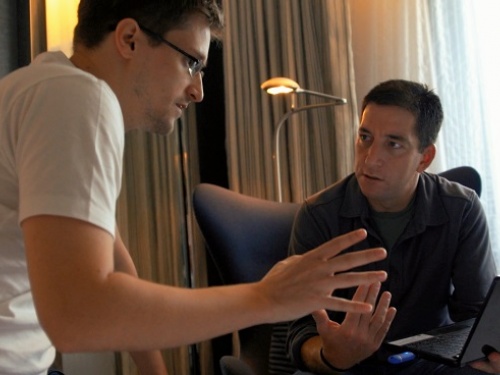Meet The Cameraperson
A Q&A with documentary cinematographer Kirsten Johnson
Documentary cinematographer Kirsten Johnson speaks to ICA Cinema & Film Programme Manager Nico Marzano ahead of screenings of her film Cameraperson, documenting her twenty-five-year career.
Cameraperson shows how complicated it is for an artist, filmmaker and documentarian to visit certain places and find certain stories, and then inevitably leave all those dramatic experiences behind, ready to move on to the next project. Could you tell us about some of the most delicate ethical dilemmas that you have had to face in your career as documentarian?
I think that there are profound ethical dilemmas that are simply intrinsic to the act of filming. We are attempting to translate the experience of being another person into cinematic language, and yet we know so little about the people we film, just as we ultimately know so little about ourselves. How much context is necessary to portray another person with the full complexity that they are due? And how much context do we need to understand why they are letting themselves be filmed? Can there ever be enough?
I think that this has always been true about filming, but now that we are in the 21st century with all of the technological innovations that have so radically transformed our relationship to each other, there are very new ethical dilemmas which we have only just begun to recognize and address. We now know that anything we film can potentially be seen by anyone in the world. Obviously this can affect political dissidents who live in places where powerful and corrupt authorities seek to suppress their opinions, but it also applies to teenagers in high school who might film each other while in love, only to have the spurned one publicly humiliate the other once they have broken up. The consequences of the ways in which filmed material can collapse public and private space has its incredibly positive aspects as well as its potentially life-threatening consequences. We cannot know the future in the instant that we film. And what we film becomes a record that can go anywhere in the world into perpetuity. I think we are just starting to understand the implications of that for all of us.
Can you describe the transition from working as a documentary cameraperson to directing your own project, especially in relation to the multiple emotional milestones you must have gone through to conceive this film?
I love it that you refer to the “multiple emotional milestones” in the process of making Cameraperson - there were indeed many and several very dramatic ones! While such milestones are always a part of filmmaking, I believe that what made this process so unlike anything I have ever experienced is that I never stopped allowing myself to actively ask every question I could find in my footage about what troubles me in documentary work. What I didn’t know as a director on this project was whether I would ever be able to find a form in which all of these questions could be raised. At so many stages along the way, choices we made about structure, or which material to use, or the voice-over I attempted to write so many times, just did not work. Over the course the many years of trying to make the film, our attempts to find form continued to be inadequate. The leap of faith I made as a director was simply to persevere – which is something that is very familiar to me as a documentary cameraperson.
We cannot know the future in the instant that we film. And what we film becomes a record that can go anywhere in the world into perpetuity.
The ICA recently screened Laura Poitras’s documentary CITIZENFOUR for 30 consecutive weeks and more recently held a live Q&A with its subject Edward Snowden. What was your experience working on a seminal project like CITIZENFOUR?
I am so grateful to the ICA for its support of Laura Poitras’s incredible work which documents Snowden’s remarkable choices. As you can imagine, I don’t believe I will ever again experience anything quite as intense as working on CITIZENFOUR. It was a prolonged state of not-knowing so many things – all of which had to be kept secret and all of which might lead to incredibly high-stakes consequences. I can only say that Laura’s capacity for friendship, collaboration and courage is like no one I have ever known, and that my respect for her is boundless.
What does objective documentary filmmaking mean to you? Has your definition of objectivity changed throughout your career?
The way in which I approach objectivity is to act on the belief that every human being deserves respect and understanding. One can only attempt this if one can acknowledge how much one needs to learn about other people’s experiences and one’s own blind spots. Thus, if you attempt to bring objectivity to your cinematic representation of a situation and the people who are living through it, you must be as diligent as you can in seeking to understand and illuminate context in all of its many forms: political, historical, emotional, psychological… I could go on and on. That is the glorious challenge and discovery of the work. The way this understanding has changed for me over time is simply that I keep being stunned by the revelation of yet another blind spot of my own.
The way in which I approach objectivity is to act on the belief that every human being deserves respect and understanding.
Are you working on any particular project at the moment?
I am collaborating with my father on a slapstick documentary in which we will face and laugh about the terrible absurdity of memory loss and death. We plan to slip Death a banana peel together in the hope that we can perhaps expand time! ■
This article is posted in: Articles, Film
Tagged with: Cameraperson, Documentary Filmmaking, Kirsten Johnson, CITIZENFOUR, Edward Snowden




/index.png?itok=qcQMXTv9)




